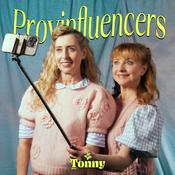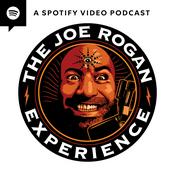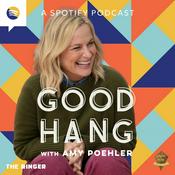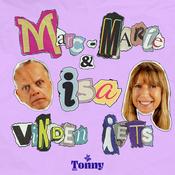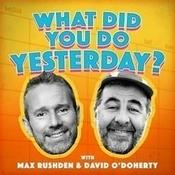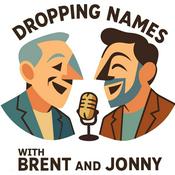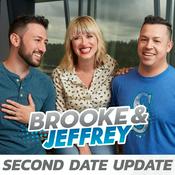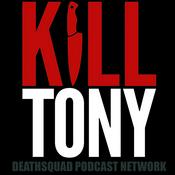UNrattled: A Podcast for Parents
Gulf Regional Early Childhood Services
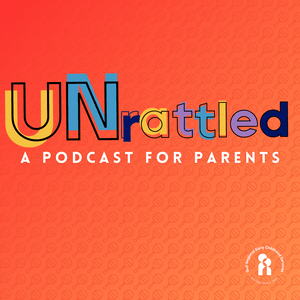
Nieuwste aflevering
53 afleveringen
- Episode Description: Parenting comes with worries — but when anxiety sticks around, overthinking every decision and anticipating worst-case scenarios can take a real toll on you and your family. In this episode of UNrattled: A Podcast for Parents, we talk candidly about what it's like to parent when you have anxiety. We'll explore how anxiety shows up in everyday moments, how it can subtly influence parenting behaviors, and practical ways to cope so you can build confidence — not stress — into your family's daily life. You'll hear research-based tips on managing your own anxiety without passing it down to your kids, how to model healthy emotional management, and why self-care isn't just a luxury — it's a parenting tool. Whether your worry feels occasional or constant, this episode is here to help you parent with intention, calm, and compassion.
Key Takeaways:
Anxiety doesn't disqualify you from being a good parent. Many parents experience persistent worry; you're not alone.
Your own coping skills become your child's roadmap. Kids observe how you handle stress — showing them healthy management is one of the best gifts you can give.
You don't have to hide your feelings — you can teach through them. It's okay to say, "I'm anxious right now, and here's how I'm working through it."
Boundaries and self-care aren't selfish — they're protective. Setting limits and carving out time for peace helps you regulate your anxiety so you can be present with your kids.
Professional support is a strength, not a stigma. Therapy, if needed, can equip you and your family with tools that transform your day-to-day experience. - In Digging In: Cultivating Curiosity Through Gardening and Biodiversity, we explore how everyday experiences in nature—from planting a garden to discovering bugs in the soil—play a powerful role in children's learning and development. Designed for both parents and early childhood professionals, this episode highlights how hands-on outdoor experiences build curiosity, confidence, healthy habits, and environmental awareness, while offering practical, approachable ways adults can support safe exploration and meaningful connections to the natural world.
Key Takeaways for Listeners:
Gardening nurtures responsibility, patience, and healthy habits while sparking sensory-rich learning experiences.
Exposure to diverse plants, insects, and ecosystems builds problem-solving skills and resilience.
Real encounters with soil, bugs, and weather deepen children's appreciation for the environment.
Families and educators can encourage safe exploration while modeling care for natural habitats.
Simple, age-appropriate garden activities foster lifelong curiosity and environmental stewardship. - The holidays are supposed to be magical… but for many parents, they also come with pressure, comparison, guilt, and unrealistic expectations. In this honest and laugh-filled conversation, we unpack the stressors that make this season feel so heavy—gift-giving guilt, family obligations, overstimulated kids, and the myth of the "perfect holiday parent."
We explore why the holidays often trigger disappointment and burnout, how to set boundaries with grace, and why your kids don't need a picture-perfect season to feel loved. You'll hear real stories, practical strategies, and gentle reminders that your worth is not measured by matching pajamas or how many family dinners you attend.
This episode is a permission slip to slow down, ditch the pressure, and build a holiday that actually feels good for your family.
Key Takeaways for Listeners:
1. Presence > Perfection - Your kids will remember how the holidays felt, not how perfect they looked. Emotional connection matters far more than gifts, matching outfits, or elaborate plans.
2. You Don't Have to Do It All - Family expectations, multiple gatherings, big budgets, and nonstop events are optional. You're allowed to create boundaries—and new traditions.
3. Kids Aren't Misbehaving… They're Overwhelmed - Holiday overstimulation is real. Meltdowns are normal, not personal failures. Simple adjustments can make the season easier on everyone.
4. Break Up With the "Shoulds" - Let go of inherited traditions or expectations that no longer fit your family. Choose what brings you peace, not pressure.
5. A Happier Holiday Starts With Realistic Expectations - The most meaningful seasons are built on connection, rest, and joy—not on comparison or obligation. - When our kids are melting down, it can feel impossible to stay calm — but that's exactly when they need our calm the most. In this episode of Unrattled, we sit down with licensed therapist Lauren Poiroux-Harvey from The Sommer House in Mobile to explore the life-changing power of co-regulation — the process of calming our children by calming ourselves.
Lauren breaks down what co-regulation really means, why it's essential for healthy brain development, and how parents can begin practicing it (even when they feel completely tapped out). We get real about the hard moments — tantrums in public, multiple kids melting down at once, and what to do when you lose your cool — and offer practical tools you can use right away to create connection instead of chaos.
If you've ever wondered how to guide your child through big feelings without losing yourself in the process, this episode will leave you feeling seen, supported, and equipped with tools to bring more calm into your home.
Key Takeaways for Listeners:
Co-regulation is the foundation of self-regulation — children first learn to calm down by borrowing our calm.
Our nervous system matters — kids pick up on our stress just as much as our calm.
It's not about being perfect — we all lose our cool sometimes; what matters is repair and reconnection afterward.
Staying calm is a skill we can practice — simple grounding strategies (breathing, pausing, lowering our voice) help us regulate in tough moments.
Big feelings are opportunities, not threats — co-regulation turns tantrums and meltdowns into teachable moments for connection.
Safe exploration of emotions builds resilience — when children see us manage stress, they learn how to manage their own.
Small steps add up — even choosing one calming practice to try this week can shift the atmosphere at home or in the classroom. - Parenting doesn't come with a manual—or a guarantee that we'll always feel ready for what comes next. In this episode of UNrattled: A Podcast for Parents, we're talking about what it really means to "do it scared." Together, we'll unpack the courage it takes to act even when fear and self-doubt creep in—whether it's going back to school, starting therapy, changing jobs, or simply showing up differently at home.
Through personal stories and honest conversation, we explore how parents can stop waiting for perfect timing, learn to trust their own worth, and model bravery for their children in everyday moments. Because courage isn't the absence of fear—it's moving forward in spite of it.
Key Takeaways for Listeners:
Courage isn't the absence of fear—it's choosing action anyway. Growth begins when we stop waiting to feel ready.
Your children learn bravery by watching you try. Modeling imperfection teaches them that fear and failure are part of learning.
Self-trust comes before external validation. You don't need permission to believe in your own worth or purpose.
Progress over perfection. Taking one small, brave step forward builds momentum and confidence.
Fear can be a compass. What scares you most often points toward the next area of growth, healing, or purpose.
Meer Komedie podcasts
Trending Komedie -podcasts
Over UNrattled: A Podcast for Parents
Step into the world of UNrattled, the podcast designed for parents seeking a refreshing perspective on the rollercoaster ride of raising children.
UNrattled goes beyond the usual parenting narrative. We embrace both the heartwarming triumphs and the comical blunders that come with the territory. Through laughter and relatable parenting stories, we're here to provide comfort on this winding path of parenthood and help you discover the hidden treasures within your own experiences.
Join us in insightful conversations that delve into our collective past mistakes—situations we once found daunting or embarrassing—and learn to shake them off with a newfound sense of empowerment. Our goal is to help inspire you to become the best version of yourself while maintaining an unbreakable bond with your child.
UNrattled isn't just a podcast; it's a sanctuary where growth meets humor. Tune in to gain invaluable wisdom, connect with like-minded parents, and emerge as a more resilient, engaged, and fulfilled parent.
Podcast websiteLuister naar UNrattled: A Podcast for Parents, Spijkers met Koppen en vele andere podcasts van over de hele wereld met de radio.net-app

Ontvang de gratis radio.net app
- Zenders en podcasts om te bookmarken
- Streamen via Wi-Fi of Bluetooth
- Ondersteunt Carplay & Android Auto
- Veel andere app-functies
Ontvang de gratis radio.net app
- Zenders en podcasts om te bookmarken
- Streamen via Wi-Fi of Bluetooth
- Ondersteunt Carplay & Android Auto
- Veel andere app-functies


UNrattled: A Podcast for Parents
Scan de code,
download de app,
luisteren.
download de app,
luisteren.




